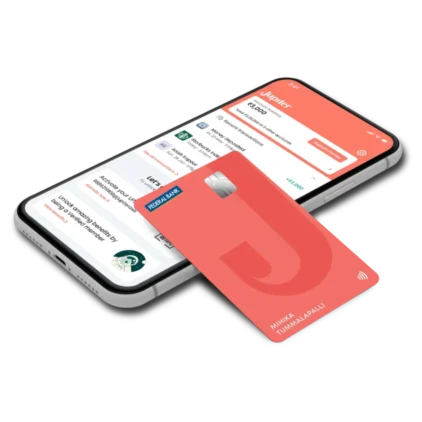Receiving calls or messages such as “Hello, This is the HR manager of ABC speaking, Are you interested in getting a job?” are surfacing more in the recent days. These calls seem okay at first glance. Nothing seems off about it. In a country where there are many people who are still unemployed and looking for jobs, out of curiosity, at least 6 out of 10 people fall for such messages and promises.
They are completely unaware of the scam that they are going to put themselves into. Tasks such as Rating hotels, Data entry, Reviewing places on Google Maps and such are put forward to the people, promising them of easy money.
This message is the gateway to the latest scam trend known as the “Telegram Prepaid Task” which has already scammed people of crores of rupees from India alone. Unlike ordinary cyber crimes, the bank account of the scammer or even the details of the fraudster cannot be traced. Everyday, at least hundreds of people fall prey to such traps.
Get free Rs. 150
In most of the cyber scams that we are aware of, the person is asked to deposit an initial amount first, in-order for the ‘task’ to begin, after which they are scammed of that amount. But here, the person is given free money in the start to keep them dwelled into the scam. Amounts of Rs. 50 or Rs.150 are given to the person according to a pay-per-task basis. This 50 rupees is an investment made by the fraudsters to withdraw at least 50,000 rupees.
WhatsApp messages will be received by the people asking them to rate a hotel or make a review on a place and so-and-so in order to get paid. For instance, they might send a Hotel link and ask us to enter the link and submit our review on that hotel. Doing 3 such tasks will eligible yourself for pay is what the promise is going to be. After this initial 150 rupees as bait, the scam now shifts from WhatsApp to Telegram.
In order to receive the said amount, the person has to approach a ‘receptionist’ in the Telegram messaging app with a special code. The receptionist will also be part of the scam. The code is received via WhatsApp and should be handed over to the receptionist.
Why Telegram?
There are plenty of reasons to why such scams take place through Telegram and not through WhatsApp or similar platforms. Unlike WhatsApp, where the contact details and the information about the sender can be easily tracked and acquired by the receiver, such a feature is not available on Telegram.
Chat without revealing the scammer details and also the feature to delete the chat from both parties makes Telegram a favorite among fraudsters. In WhatsApp, even virtual or fraudulent accounts are identified and removed quickly. This doesn’t happen on Telegram making it easier for the scammers.
Receptionist will give ‘Rs. 150’
As soon as the receptionist receives the special code from the person, they will ask for your bank details in order to make the payment. Within 10 minutes, the amount might reach the person. This makes the person believe that they can make more money by doing the same thing and making them dwell deeper into this scam. The person will be added to a Telegram group for further tasks. The group will also have a unique number which is the number they provide for you.
There will be 24 tasks per day. 50 to 200 rupees per task is promised to the person. On an hourly basis, links related to Hotels and YouTube channels will appear on the Telegram group for the person to enter and complete the tasks. 200, 250 rupees will reach your account on completion of 3 tasks each. This further increases the appetite for money without the person even realizing it.
The trap of prepaid task
After completing the first 6 tasks, a small amount will be there to see for the person in his/her account. Once the person realizes that the money is getting credited, they start trusting the scam more and more. Tasks 7-9 will come next, in which task 8 is prepaid.
If you send Rs. 1500 through online banking, you will get an immediate refund of Rs. 1901 (40% increase). Some people won’t pay this amount thinking that it might be a scam. But many people in the group will post proof of money laundering in the group. You are not aware that you are the only real person in that group of 20 people.
The remaining profiles that have been sending the proofs, are fake and this makes you believe that people are actually getting paid. You will get paid only after completing 3 adjacent tasks. Prepaid tasks can be skipped only twice. One of the latter 3 tasks is always prepaid. By not attending it you will not get paid for the free tasks.
Finally the person gets convinced to approach the receptionist for trying the prepaid tasks. By depositing 1500 rupees into the account, they provide Rs. 1901 will be reached into your account within 10 minutes. This gains your trust to an almost complete level. You start depositing more and more into the receptionist account. Up to 30000 rupees will be deposited to multiple accounts by betting on the game.
These accounts are not actually scammer accounts but the accounts of other people playing the same game. In other words, the other people who are in the same trap as you. The same goes for getting your money back. The first such transactions are chained from players themselves to each other to earn each other’s trust. Going to larger numbers will result in the money not getting refunded. A higher amount is demanded to recover the trapped amount.
They invest more money in each subsequent task to recover the previous investment. At the end of a phase, it becomes clear that no money is actually going to get returned. eventually, they will be kicked out of the Telegram group. The chats from both sides is deleted thereby, destroying every evidence.
To whom was the money paid? Where did the money come from?
When the game starts getting into larger sums, you are given suggestions to send money to some unrelated accounts like Janpath Electricals. Om Sai Barwala Poultry Farm Ltd, Azhar Traders. All these are fake current accounts held in the name of some fictitious entities. These accounts may not directly operated by the fraudsters. Fraudsters use fake accounts to buy and rent them to receive large sums of money. Following these will only trap account renters. Fraudsters opt for current accounts because they can transact large sums of money limits.
The next attempt of fraudsters is to take the money in the current account out of the banking network. Many people who convert money into cryptocurrency are hired as part-time jobs. The money obtained in the current accounts through fraud will be converted into small amounts and sent to the savings accounts of hundreds of such people. Those who have accounts on crypto exchanges like Binance will convert this money into Bitcoin. This is what they get commission for.
Eventually, the money will enter India as it is sent to the fraudsters’ crypto wallet. It should be remembered that all the transactions till then were controlled by the fraudster very skillfully using bank accounts. Once the investigation is done, it often gets in the way.



